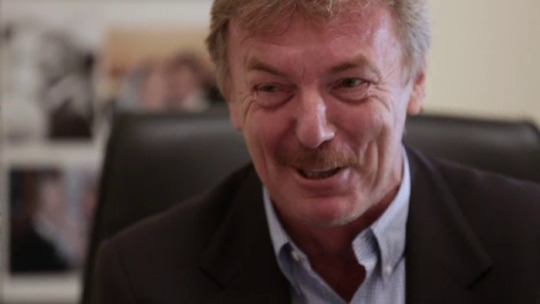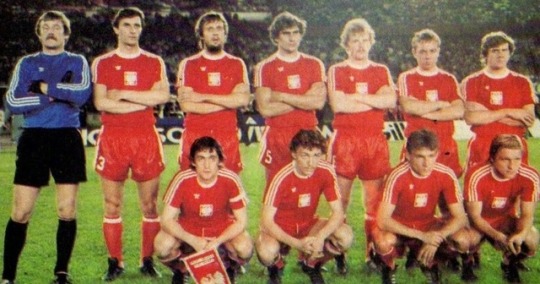Photo

Boniek today
Nowadays Boniek has become an appreciated football commentator and opinionist. He continues living in Rome but he still has a strong connection to his motherland, and some rumours indicated him as a candidate to become Minister of Sports in Poland.
1 note
·
View note
Photo

Boniek as a trainer
Zibi’s managerial career was a less successful one. After his retirement, Boniek attended a coaching course in Coverciano, and trained Lecce in 1990–91, Bari in 1991–92, Sambenedettese in 1992–93 and Avellino in 1994–96.
He also was vice-president of the Polish Football Association and in 2002 he became the manager of Poland. He resigned in December 2002, after five matches only.
0 notes
Photo

Zibi Boniek in 1981 with the Polish National Team
1 note
·
View note
Photo

Boniek’s style
A midfielder for the majority of his career, Boniek also played as forward, scoring important goals. He was a tactical anarchist, which sometimes caused him a few problems, especially with Trapattoni soon after his arrival in Italy. Quite a versatile player, he loved to play between the lines, moving from right to left to then suddenly penetrate the central line of the opponents.
His best quality was a powerful acceleration, accompanied by excellent technique, great courage and steady determination.
His synergy with Platini worked really well. Boniek was extremely able to take advantage of the long passes coming from the French ace, and became like a blade in the flank of the rival defense. As admitted by Maradona himself, Zibi was among the best counter-attackers, if not THE best.
Because he loved rapidity and running in wide spaces, he didn’t feel very comfortable in tight games, and this probably was his weak point.
1 note
·
View note
Video
youtube
World Cup 1982 in Spain was a great showcase for Zibi, who lead Poland to the podium (3rd place against France) scoring three goals against Belgium in the group stage.
1 note
·
View note
Video
youtube
Bello di notte
This was the nickname given to him by Gianni Agnelli, the President of Fiat and Juventus, when he introduced him to Henry Kissinger. Boniek always said he liked that epithet, which referred to the fact that he was more prolific in games played in the evening.
2 notes
·
View notes
Photo

Boniek conquers Rome
The following season Boniek joined AS Roma, where he won the heart of supporters by showing a great love for the team of the capital city of Italy. Together, they succeeded in winning Coppa Italia in 1986, and eventually ended his professional career with the club in 1988.
0 notes
Text
Zbigniew Boniek
One of the most representative Eastern Europe footballers of all time, Boniek was born in 1953, in the town of Bydgoszcz, Poland.
His early career developed through the local team and Widzew Łódź, but the real turn was in 1982, when he was contracted by Juventus, that was at the time one of the best teams in Europe.
In Turin, Boniek joined 6 world champions and the future star of French football Michel Platini.
1 note
·
View note
Photo

Boniek at Juventus
During his first season with Juventus, Boniek won Coppa Italia and took part in the European Cup, losing to Hamburger in the Final held at the Olympic Stadium in Athens (1983). The following year his contribution was decisive to win the Serie A title and the Cup Winners' Cup (1984), with Boniek scoring the 2–1 goal in the victory over Porto.
The winning streak continues in 1985, with the European Super Cup, where he scored 2 times in the 2–0 win against Liverpool. Then arrived the tragedy of Heisel, where Juventus was harshly criticised for celebrating the victory over the blood of the 39 casualties.
1 note
·
View note